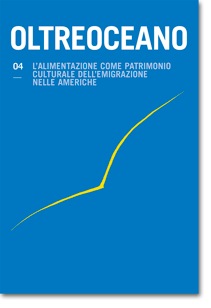Il cibo nelle Relations di Marie de l’Incarnation
Keywords:
cibo, digiuno, orsoline, Canada, Marie de l’IncarnationAbstract
Lo studio focalizza l’attenzione sull’evoluzione della rappresentazione del cibo nelle due Relations, di Marie de l’Incarnation. Paradossalmente, è proprio il racconto mistico, spazio della rappresentazione di dilemmi, dubbi e contraddizioni del soggetto che scrive, a diventare il genere dove si realizza quella désacralisation de l’espace du dedans che apre la strada alla moderna autobiografia, espressione di un soggetto la cui sensibilità sta mutando.
Food in Marie de l’Incarnation’s Relations
This study focuses on how the representation of food evolves in two Relations by Marie de l’Incarnation. Paradoxically, the mystical tale, which usually focuses on the representation of the writer’s dilemmas, doubts and contradictions, becomes the genre that elicits the désacralisation de l’espace du dedans which paves the way for modern autobiography, the expression of a subject whose awareness is changing.
Downloads
References
Albert, J.P. (1997): Le Sang et le ciel. Les saintes mystiques dans le monde chrétien. Paris: Aubier.
Albert, J.P. (1999): L’écriture des mystiques: affirmation ou effacement du sujet? In A. Iuso (Ed.), Scritture di donne. Uno sguardo europeo (pp. 23-32). Arezzo: Protagon.
Bell, R. 81985): Holy Anorexia. Chicago and London: The University of Chicago Press.
Bilinkoff, J. (2005): Related Lives: Confessors and Their Female Penitents, 1450-1750. Ithaca NY: Cornell University Press.
Brown, P. (1988): The Body and Society: Men, Women, and Sexual Renunciation in Early Christianity. New York: Columbia University Press.
Cloud, C. (2006): Embodied Authority in the Spiritual Autobiographies of four Early Modern Women from Spain and Mexico. Dissertation Ph. D. Advisor Maureen Ahern. Ohio State University: Spanish and Portuguese.
Cruz, San Juan de la (1986): Cántico Espiritual y Poesía Completa. P. Elia & M. J. Mancho (Eds.). Barcelona: Crítica. Santa Teresa de Jèsus. Libro de la Vida. Ed. Otger Steggink. Madrid: Castalia.
Cruz, San Juan de la (1999): Las moradas del castillo interior. D. Chicharro (Ed.). Madrid: Biblioteca nueva.
Gusdorf, G. (1975): De l’autobiographie initiatique à l’autobiographie genre littéraire. Revue d’Histoire Littéraire de la France, LXXV, 6, pp. 957-994.
l’Incarnation, Marie de (1929-1939): Écrits spirituels et historiques, I-IV. Dom Claude Jamet (Éd.). Paris-Québec: Desclée De Brouwer - L’Action sociale.
l’Incarnation, Marie de (1971): Correspondance (1634-1677). Dom G. Oury (Éd.). Sablé-sur-Sarthe: Solesmes. Abbaye Saint-Pierre.
Maître, J. (2000): Anorexies religieuses, anorexie mentale. Essai de psychanalyse sociohistorique. De Marie de l’Incarnation à Simone Weil. Paris: Cerf.
Martin, C. (1971): La Vie de la vénérable Mère Marie de l’Incarnation: première supérieure des Ursulines de la Nouvelle France, tirée de ses lettres et de ses écrits,1677. Paris: Loüis Billaine Ristampa. Dom G. Oury (Éd.). Sablé-sur-Sarthe: Solesmes. Abbaye Saint-Pierre.
Downloads
Published
How to Cite
Issue
Section
License

This work is licensed under a Creative Commons Attribution-NonCommercial-ShareAlike 4.0 International License.
The authors undertake to comply with the following conditions, which are considered accepted at the time of submission of their contributions.
The sending of a text implies that it is unpublished and not submitted to be published elsewhere.
1. If accepted, the author shall confer on the publisher the right to publish and distribute it both in paper form and in the online electronic edition. The published articles will be downloadable and made available in open access.
2. Provided that it correctly indicates that the first publication took place in the journal Oltreoceano. Rivista sulle migrazioni the author has the right to: a) reproduce the article in separate extracts or collected in a volume; b) publish the article on their personal website or teaching site provided that these sites are of a non-commercial nature; c) deposit the article in online archives of a non-commercial nature, linked to the institution they belong to or as part of projects for the non-commercial dissemination and open access of scientific works.
The use of contributions by third parties, for commercial or otherwise unauthorized purposes, is not allowed. The publisher declines all responsibility for the unauthorized use of the material published in the journal.












